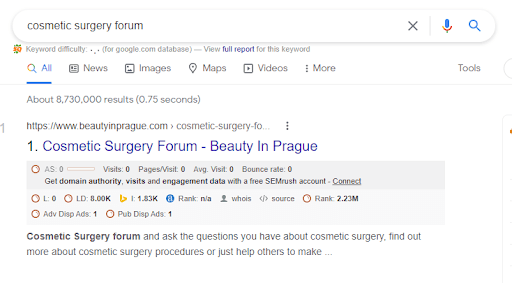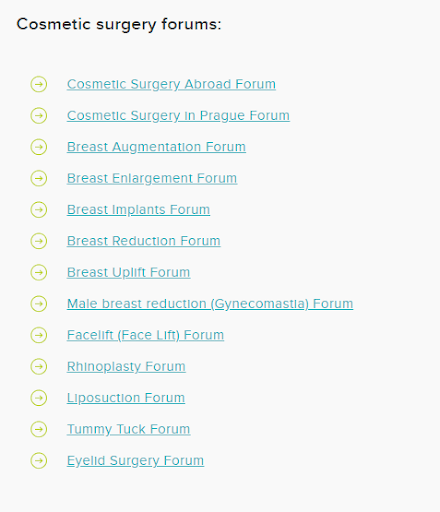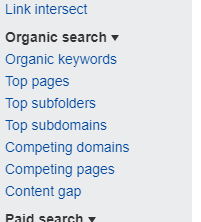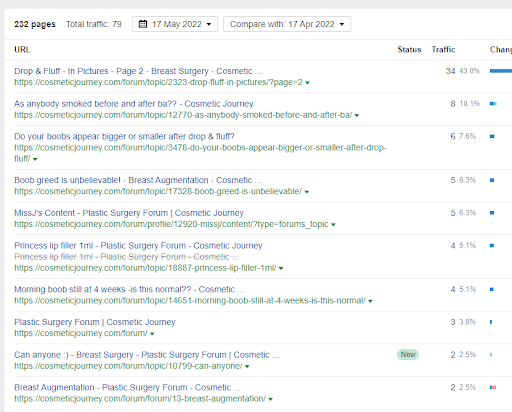Forums for keyword research: an untapped resource
Everyone who invests in sound SEO is interested in developing their websites’ informational content – to target high-volume keywords relevant to their audience. As time-tested as this strategy is, you can run dry of topics or even struggle to rank because competitors are looking at the same informational terms as you.
A truly audience-led approach can be less competitive and uncover opportunities that your competitors may not have considered. Industry forums are where you can find real customer questions, opening up new topics.
My process follows the theory that if a forum thread ranks well for a keyword, it should be easy to rank well with long-form, targeted content based on that thread.
How to find your forums
Discovering a reliable list of relevant forums is the first step. In order to do this, search for: “[your niche]+forums”
I recommend avoiding big forum sites like Quora and Reddit. Although these may have some relevant sub-pages, we’re looking for more specific industry sites, allowing us to use the whole domain for our keyword research later on.
Step 1 : Identify relevant forums
You’ll need 5-10 forums that are really relevant to your industry – those with high engagement, recent contributions and relevant topics.
Be sure to search for multiple variants of your key topics: e.g. cosmetic surgery forums, plastic surgery forums, dermal filler forums etc.


Step 2: Use Ahrefs Site Explorer for first-stage research
Once you’ve got a solid list of industry-specific forums, use Ahrefs (or a similar programme) to reveal the top organic pages for each of these forums. You want the specific threads generating the most organic traffic to the forum – those searched for more by your target audience.
You’ll have to input each forum domain into Ahrefs Site Explorer one by one:

Ensure you’re searching by ‘path’ so you can see all the top-performing pages from the whole website.
Step 3: Pinpoint pages with the most organic traffic
The ‘Top pages’ feature in Ahrefs will show the most popular pages organically within the whole forum site. This is a great way to prioritise which topics to cover.


Step 4: Filter through the ‘top pages’ to find what is relevant
Not all the top pages from your chosen forum will be completely relevant to your business. It’s vital to only cover topics you have the expertise to address.
Look out for:
- Pages with titles that would naturally lend themselves to blog content (e.g. ‘how to’, ‘what is’, ‘when is’).
- Topics you know are relevant to your industry that you haven’t addressed before.
- Real problems your audience are facing that can be solved with your products or services
Step 5: Find the keywords ‘top pages’ rank organically for
Put each of the top pages back into Ahrefs Site Explorer to see what keywords these pages actually rank for – at a more granular level. Remember, this is an audience-led approach, so don’t worry if the page only ranks for a few keywords (or even just one): they’re highly relevant to your audience and still worth addressing in your blog.

Step 6: Dig deeper with another level of keyword research
Once you’ve discovered what keywords these top pages rank for organically, we can do another level of research. We now want to use these top page keywords as ‘seed’ keywords, and see what else is relevant, or what other variants of the keyword we can address in our content. For example, the term ‘drop and fluff’ yields these results from Ahrefs Keyword Explorer:

Lists of keywords like these can even present opportunities to create multiple blogs, using variations on a theme. For example:
- ‘Does drop and fluff make your implants appear bigger or smaller’
- ‘Drop and fluff: before and after pictures’
- ‘Drop and fluff timeline photos’
Step 7: Use these keywords as the basis for your new content strategy
Not each individual keyword you find will be its own blog: some variants of similar keywords will cover the same content and won’t merit an individual post. Below is an example of how to combine multiple keywords into one title that Google would rank in the same results.

Conclusion
It’s a risky strategy to just put a relevant term into a keyword research tool and then write a blog on the highest volume keyword that you find. You should always write content for your specific audience – as well as producing content for Google.
Third-party tools can be useful for coming up with new content ideas, but you should always write content that answers the questions your audience is really asking, on the topics they’re discussing within their online communities.


